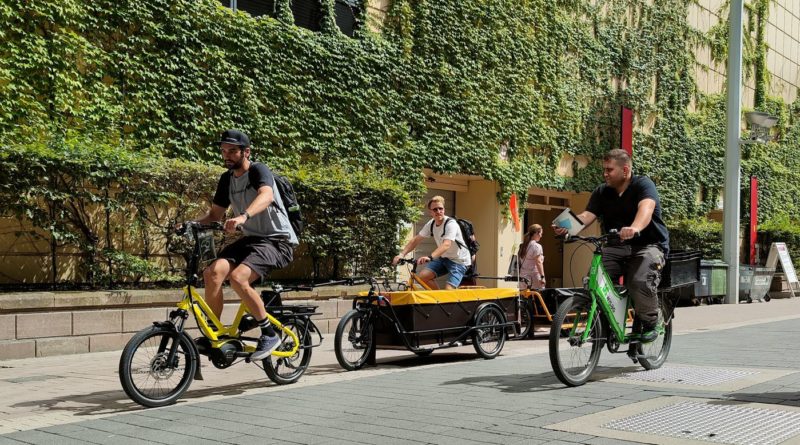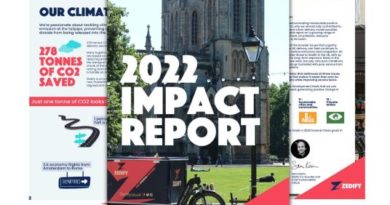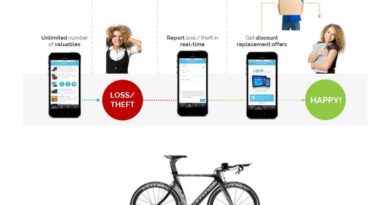Mintel confirms eBike market taking pause in cost of living crisis
Data compiled by trusted market data vehicle Mintel has confirmed the suspicions of many in the industry, that for the first time in five years the UK eBike market has not registered growth, something largely attributed to a cost of living crisis gripping much of the world.
In a report that’s littered with fascinating facts on the UK eMobility space we learn that the number of electric bikes sold rocketed up by 63% in 2020 versus the year prior, which was the sharpest growth spurt in the 2017 to 2022 period. These figures took the market value from £150 million to £290 million in just one year. That, of course, was largely driven by Covid’s now well reported upon ‘bike spike’, where cycling was promoted as one way to stay active and safe.
In 2022, value sales of eBikes hit an estimated £310 million, down from £330 million in 2021. Although sales are set to temporarily slow between 2022 and 2023, Mintel predicts faster growth to return to the eBike market from 2024 onwards.
Following five consecutive years of growth, volume sales are expected to have slowed in 2022, falling from 160,000 bikes in 2021 back to an estimated 155,000 bikes in 2022. Nevertheless, volume sales have almost tripled over the past five years–as only around 55,000 eBikes were sold in 2017.
The bulk of the market is made up of hybrid and city bikes, as well as a strong showing for electric mountain bikes, for which the UK has an admirable enthusiast base; combined these segments were said to account for 90% of sales.
What is perhaps unsurprising for anyone watching the space is the acceleration from a low base of the cargo bike marketplace. This has previously been revealed to be a high growth space in data released by the Bicycle Association in Q3 last year. Mintel points to near half (47%) of Brits in one survey having belief in the cargo bike as being a viable inner city delivery alternative to vans.
Micromobility resonating with consumers looking for savings
Tracking not just the eBike market, but other eMobility forms too, Mintel puts the current market valuation in the UK, despite a snail’s pace, pending legislative approval, at around £50 million; £40 for the adult segment and £10 million for those pitched to kids. It is widely expected legislation will come forwards to legalise eScooters, but progress has stalled after positive signs in the Queen’s Speech last year.
The research estimates that the sales volume came in at around 175,000 units in 2021, despite the current regulations only permitting legal use on private land.
All of the above is in part driven by consumers’ feeling the pinch of the cost of living crisis. 55% of those asked pointed to petrol/diesel costs, alongside steady increases in public transport bills as a reason to consider the switch to eMobility.
44% agree that e-bikes/e-scooters should be used to replace short journeys on other modes of motor transport.
As flagged in Shimano’s State of the Nation report, overall penetration with consumers actually remains very low, especially when compared to mainland Europe; something that suggests we have a heck of a marketing effort to get underway to tap the blue ocean of potential customers revealed by Mintel.
Overall, 7% of adults have used e-mobility modes over the past 12 months; 5% have used an e-bike and 4% have used an eScooter. Despite relatively low usage, some 43% of adults say they would be interested in test-riding an eBike and 34% would be interested in test-riding an eScooter.
While COVID-19 triggered a rapid growth of the eBike market, new research from Mintel reveals that for the first time in five years, volume and value sales of pedal assisted bikes has dipped. Meanwhile, Mintel research shows the average cost of an eBike has risen 25% since the start of the pandemic.
The number of eBikes sold into the market rose a record 63% between 2019 and 2020 – the highest annual growth over the period 2017-22, reaching an estimated 155,000 bikes in 2020. Following five consecutive years of growth, volume sales are expected to have slowed in 2022, falling from 160,000 bikes in 2021 back to an estimated 155,000 bikes in 2022. Nevertheless, volume sales have almost tripled over the past five years–as only around 55,000 eBikes were sold in 2017.
Meanwhile, the value of the e-bike sector almost doubled between 2019 and 2020, from £150 million to £290 million. This is an almost fivefold increase since 2017 when the market was worth £65 million. However, the overall cycling market has entered a sharp downturn over the past 18 months, driven by falling consumer demand and exacerbated by ongoing supply chain problems. In 2022, value sales of e-bikes hit an estimated £310 million, down from £330 million in 2021. Although sales are set to temporarily slow between 2022 and 2023, Mintel predicts faster growth to return to the e-bike market from 2024 onwards.
While e-hybrid/city bikes and e-mountain bikes account for 90% of eBike sales, Mintel research highlights significant potential for e-cargo bikes*, as half (47%) of Brits agree that e-cargo bikes should be used for deliveries in cities instead of vans.
Mintel research also estimates that around 175,000 eScooters were sold in the UK in 2021 (around 100,000 adult e-scooters and 75,000 kid eScooters). The value of this sector in 2021 was estimated to be around £50 million (about £40 million for adult e-scooters and £10 million for kid e-scooters).
This comes as 55% of consumers agree that the rising cost of petrol and public transport has made e-bicycles more appealing, while 44% agree that e-bikes/e-scooters should be used to replace short journeys on other modes of motor transport.
Overall, 7% of adults have used e-mobility modes over the past 12 months; 5% have used an e-bike and 4% have used an e-scooter. Despite relatively low usage, some 43% of adults say they would be interested in test-riding an e-bike and 34% would be interested in test-riding an e-scooter.
Paul Davies, Category Director, Leisure Research, Mintel Reports, said: “Cost is seen by consumers as the biggest barrier to eBike sales, and the weakness of the pound is likely to push prices higher in this heavily import-led market. Although e-bike customers tend to be relatively affluent, a protracted cost-of-living crisis and income squeeze are likely to delay purchase decisions and some consumers will be priced out of the market. The lack of e-bike purchase subsidies from the government (as seen in other countries) also continues to act as a barrier.
“Brands would benefit from promoting the ‘wellness plus fun’ angle of eBikes, positioning health benefits—physical and mental—combined with a focus on how eBikes bring fun to transport. E-bikes offer a more leisurely option, supplementing the still popular, Lycra-clad, performance cycling ethos.”



